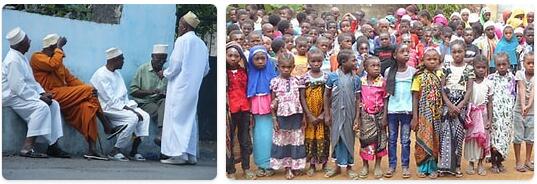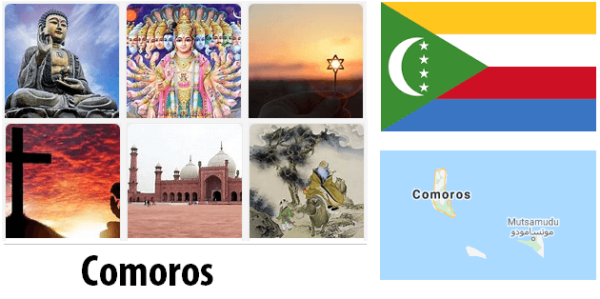After an election campaign marked by allegations of irregularities, in May 2002, Assoumani was deployed as the federation’s president. Mohamed Fazul was declared winner of the Moheli election, which was also marked by irregularities, Bacar won the presidential election at Anjouan and Abdou Soule Elbak was elected president of Gran Comora.
The constant disputes between Assoumani and Elbak on the distribution of tax revenue, security and the budget delayed the parliamentary elections to be held in 2003. After neighboring countries, international organizations and civil society groups mediated in the conflict, agreements could be concluded in December 2003. holding elections in April 2004.
The federal parliamentary elections in April 2004 were won by the national parties from each of the 3 autonomous islands. These parties are primarily united because of their opposition to President Assoumani, who rules while the opposition controls parliament.
In August, vanilla registered a sharp fall in the price of international markets, which could in the long run lead to disaster for this industry. Vanilla is the most important export product from the estates, where political turmoil in recent years has slowed investment in other sectors. 33% of the country’s agricultural exports are made up of vanilla. statistics from the FAO. Agriculture accounts for 40% of GDP.
In September, French journalist Morad Aït-Habbouche was arrested in Moroni immediately after his arrival in Gran Comora, accused of “preparing for a coup d’état”. The journalist was arrested along with Said Larifou, leader of the opposition association Rassemblement pour une initiative de développement avec une jeunesse Avertie (RIDJA), which had been running for the presidential election at Gran Comora the year before. Larifor was charged with participation in the coup plans.

That same month, Larifou and his supporters had organized a protest demonstration in Mbeni – on the eastern coast of Gran Comora. The demonstration had attended about 1,500. Larifou had criticized both the local and the central government, because of the blind comorian government in his opinion was inside.
In January 2005, the first state visit in 30 years by the Comoros took place in France, when Assoumani and his French counterpart Jacques Chirac agreed to “revitalize” relations between the two countries. In April, the Karthala volcano erupted on the island of Njazidja. The outbreak lasted only a few days, but was so severe that 40,000 people were evacuated. In 2006, the volcano had another minor eruption. It is currently considered one of the world’s most active volcanoes.
According to thesciencetutor, religious leader Ahmed Abdallah Sambi won the presidential election in May 2006, after defeating 2 other candidates from Anjouan – the island to which he had the presidential post in the rotating presidential system.
In June 2007, governor elections were held on each of the islands, monitored by the African Union. Subsequently, France refused to recognize the result at Anjouan. On this island, Bacar had been re-elected, despite the fact that he was. the law could not repeal. The conflict culminated when a force from the OAU in March 2008 attacked Anjouan and removed Bacar, who subsequently sought asylum in Mayotte. The OAU forces consisted of soldiers from Sudan, Senegal and Tanzania, and also had logistical support from Libya and France. Bacar subsequently sought asylum in France, leading to anti-French demonstrations in the Comoros demanding him extradited. In May, France rejected the asylum application, but at the same time decided not to send him back to the Comoros on the grounds that he would be subject to persecution.
The December 2010 presidential election was won by Ikililou Dhoinine with 61.2% of the vote. He got 28.2% in the first round of the election.
